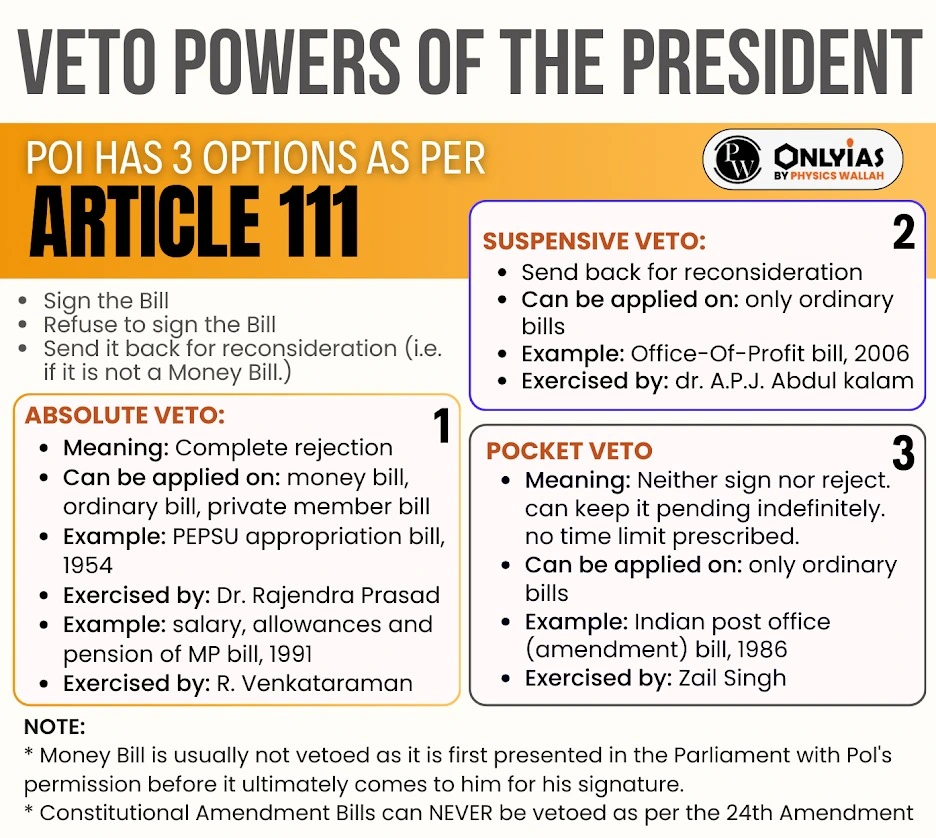![]() October 18, 2025
October 18, 2025
![]() 16379
16379
![]() 0
0

In parliamentary systems like India, the President holds the authority to withhold assent to bills passed by the Parliament, thus preventing them from becoming law without further consideration. This power acts as a check on the legislative branch, ensuring that proposed laws are in line with constitutional principles and national interests.
Presidential Veto over State Legislation
The veto power vested in the President is a fundamental feature of India’s parliamentary democracy, serving as a safeguard against hasty or unconstitutional legislation. As a constitutional functionary, the President plays a crucial role in upholding the integrity of the legal framework and ensuring that laws enacted by the Parliament adhere to the principles of justice, equity, and the rule of law.
<div class="new-fform">
</div>
Latest Comments